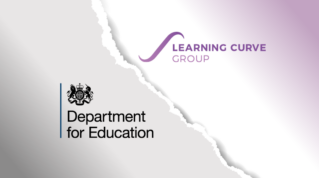A new quality mark for London’s adult education providers could give them the edge in future bids for capital and education funding.
On Wednesday, the Greater London Authority (GLA) launched its own quality mark designed to recognise high-quality courses in the mayor’s six priority sectors.
The Mayor’s Academies Quality Mark is now open for applications for all types of education and training providers that deliver publicly funded courses to Londoners. The GLA hopes that the new scheme will incentivise high-quality provision and make it easier for employers and learners to find the best courses.
Quality marks will be awarded at sector level, so providers can apply for more than one if they meet strict criteria. The sectors that have been chosen for the scheme are creative industries, digital, green, health and social care, hospitality, and construction.
Most London colleges and training organisations eligible to apply for the quality mark will have already achieved the required grade two or above Ofsted inspection judgment. However, GLA-appointed assessors will be looking for a wealth of evidence to satisfy the criteria spanning 25 application questions.
To be successful, providers will have to submit evidence that proves courses in their selected sectors are of high quality, support under-represented groups, are well supported by employers and embed key principles around fair pay and good work, net-zero, and diversity and inclusion.
London’s deputy mayor for planning, regeneration and skills, Jules Pipe, described the quality mark as “an important step in recognising and showcasing good practice, allowing Londoners and employers to access the best training London has to offer”.
The quality mark builds on a similar existing scheme in the capital, the Mayor’s Construction Academy Quality Mark, which has been awarded to 25 providers that are listed publicly in a dedicated course directory on the GLA’s website.
The new quality mark could be more than just a badge of recognition.
The scheme’s application guidance indicates the GLA’s intention to prioritise providers that have been awarded one or more quality marks in future funding rounds for capital and programme pots.
According to the guidance, “going forward, the quality mark and its wider principles will be reflected in the application process for other GLA employment and skills programmes, such as skills bootcamps”.
It also states that “the mayor expects to launch an opportunity to access funding for investment in estate, facilities and equipment for providers that hold the quality mark”.
London appears to be the first authority with a devolved adult education budget to introduce its own quality mark scheme of this kind.
In addition to possible VIP treatment in future funding rounds, holders of the quality mark will be appointed to networks to “tackle sector-wide challenges” to collaborate more with employers.
The GLA also plans to host an awards ceremony to promote adult, further and higher education in London as part of its efforts to celebrate excellence and promote learning opportunities through its recognised provider base.
Providers have until April 14, 2022 to apply, with successful bidders set to be announced in May.

















The health warning was never added when devolution was launched! …. That the devolution system will result in massively increased overhead costs that divert more money away from supporting the direct cost of supporting learners. It is obvious that if every devolved authority independently control and manage all service systems, the duplication of effort and resources will be enormous.
Independent quality measures are just another example of this. Devolution of the provision should be more focussed on local policy priorities and control of these. Sadly, the megalomaniac attitude of devolved leaders and organisations simply fails to see the considerable benefit of central systems being locally controlled !